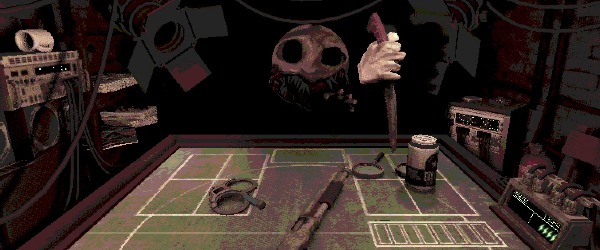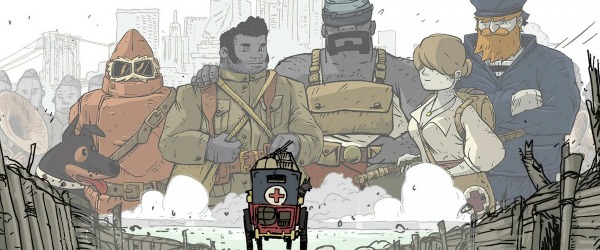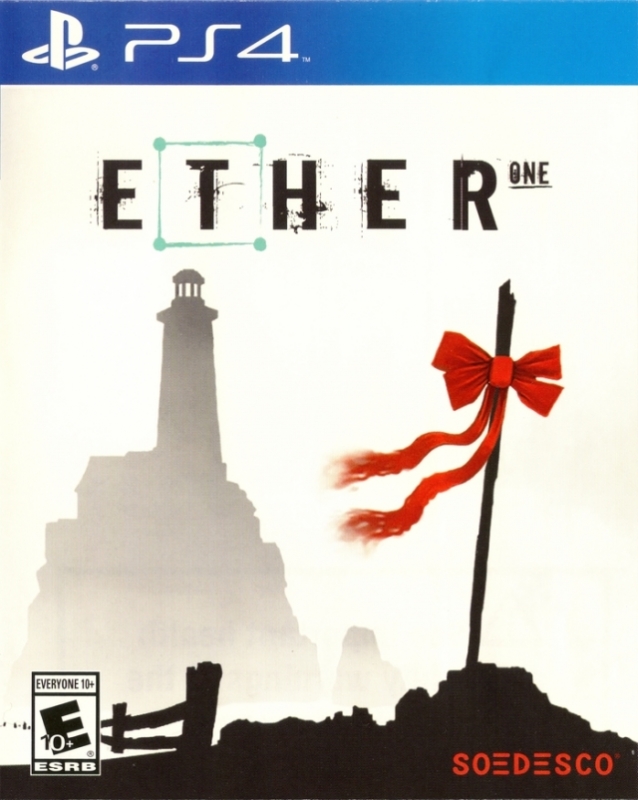
Ether One (PC) - Review
by VGChartz Staff , posted on 24 March 2014 / 7,877 ViewsThe rising popularity of the Indie scene has allowed small studios to take on subjects that bigger studios wouldn’t dare to touch. White Paper Games is a studio that wouldn’t have existed before this movement, but thankfully they've been able to take on challenging subjects that bigger studios would shy away from. Ether One is their first game, made with the hope that this will keep the studio afloat to make more games, but does Ether One justify its $20 price point, or is it an Indie game that’s gotten too big for its own boots?
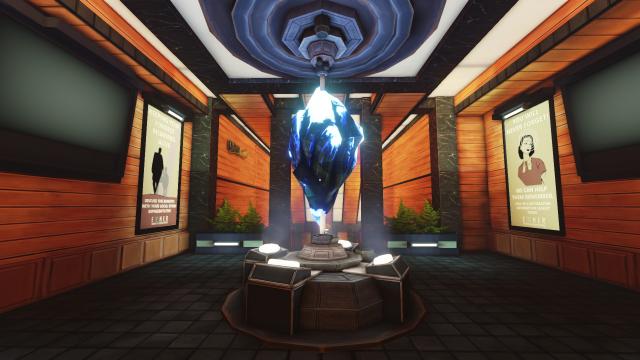
The game focuses on the theme of dementia, with everything you do centred around trying to fix a patient’s brain by exploring previous memories that were important and central to this person’s being. It’s a nice premise, one that gives White Paper Games a chance to not only look back at life in the 1950s, but also to allow you, the player, to make your own stories centred around what happened in the past. You’re given a blank slate for a world, and are constantly pushed to guess at what lives inhabited this patient’s past, as well as what mistakes they made.
You start the game exploring a weird office, something that looks like it’s taken straight from Portal 2 with its elegance and professionalism. You get to explore this environment, opening drawers and cupboards, getting used to the game’s mechanics, until you decide to follow the narrator's instructions and go to a test chamber where you find a chair in the centre of the room. After a bit of meddling with electronics to teach you how to solve problems in this weird world, you sit in the chair and plunge into the “Case”, a place between memories and the real world where you can examine evidence and objects you have collected, which helps you to solve mysteries further down the line. This is a fully explorable level, with rooms to hold your collections, and will be integral to your progress throughout the campaign. Pressing the back button on the controller brings you into the patient’s actual memory, where you can then begin to explore the main narrative of the game.
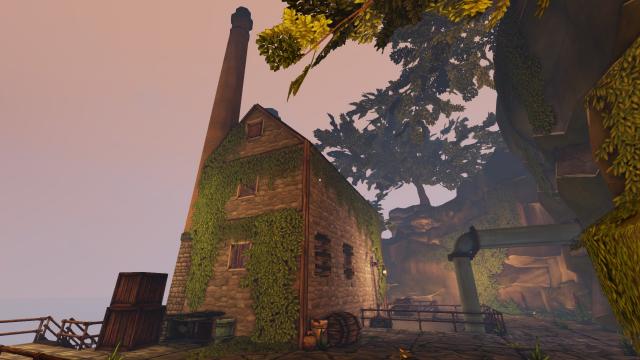
As you start to explore the patient’s memories, stories will be told, but not in the traditional way story-telling usually unfolds. In most games, you’re typically an active bystander watching the narrative unfold in front of you, or taking part in it by following a linear path from one story piece to another. Ether One on the other hand encourages you to create the narrative yourself as you explore the world and find little bits of information. An abandoned house may not look like much, but as you start to rummage through the drawers and look at papers scattered around it, you can presume a family lived here; that they had financial difficulties and were going through a terrible time in their life, no thanks to the mine that the whole town is centred around. Ether One is made up of these tidbits of information, giving you enough information to start making your own story, but leaving big enough gaps that you have to create the rest using your own imagination.
Whilst most of Ether One centres around exploring environments to find red bows that progress you through the main narrative, there are items throughout the world that can be used to solve mysteries and puzzles hidden within the environment, giving you a better understanding of the patients' past. There are 20 projectors hidden across Pinwheel, with each one requiring specific prerequisites in order to be repaired and played. Throughout my playthrough I only managed to repair 4, as the items and prerequisites were quite hard to solve. They require placing items in specific places, or remembering a code you read on someone’s notes in the previous area, which could have been a long time ago. It makes for a highly replayable game, but one that can be confusing and difficult to master if you have a short memory. It’s all optional, though, so this is just icing on the cake if you want to learn more about the world and its past.
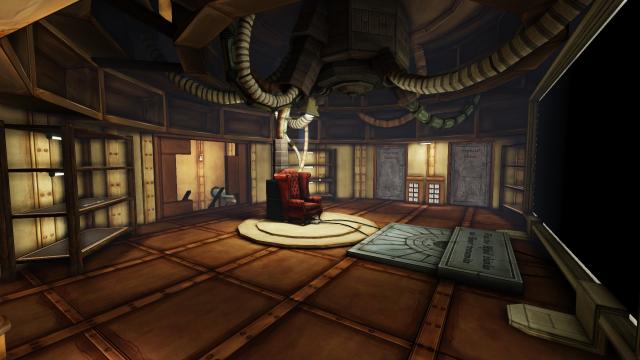
Graphically, the game is an interesting mix of beauty and strangeness. The art style looks similar to that found in Fable or BioShock, but at times you’ll be torn out of the experience when you come across a door or table that is more cel-shaded than the rest of the environment, making it stick out like a sore thumb. Cut scenes are rare, but when encountered they overwhelm you with images and content, leaving you confused but intrigued, and pushing you deeper and deeper into the narrative of the campaign. Overall, for a small studio, the graphics and environment of the world do a good job of conveying a real town that was inhabited and cared for, something that can be quite rare even in today’s AAA games.
One point I feel I must make is related to the sound and atmosphere of the game. Ether One’s sound effects are perfectly executed, conveying a spooky town or abandoned mine with ease and, in turn, giving the game an atmosphere that will send a chill down your spine. The feeling of walking around someone’s memories whilst generators are whirling, seagulls screaming, and floorboards creaking conjures up some very scary sequences; at times it felt like I was playing an Amnesia-esque horror game rather than one focused more on story and narration.
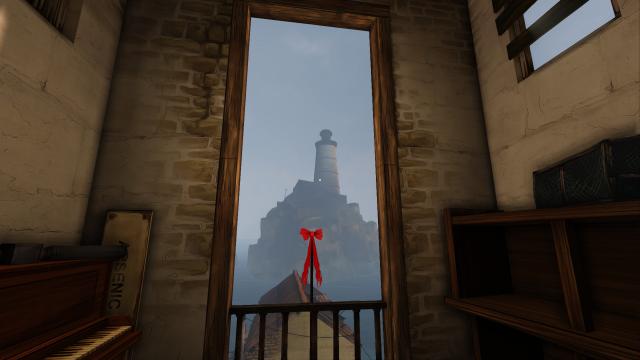
Ether One is for those of us who want something more from our games, not constant action and minimal narratives. Here, distracting gameplay elements have been taken away, ensuring that a believable story is at the forefront of the experience. It took me 4 hours to complete Ether One on my first playthrough, although I missed a fair bit of side content that would have filled the game out and made its $20 price point feel more justified. Ether One takes some of the best parts of Gone Home and To The Moon and melds them into something highly original, making it an appealing title for those wanting a unique gaming experience that’s thought-provoking and emotional.
VGChartz Verdict
7.8
Good
This review is based on a digital copy of Ether One for the PC, provided by the publisher.








